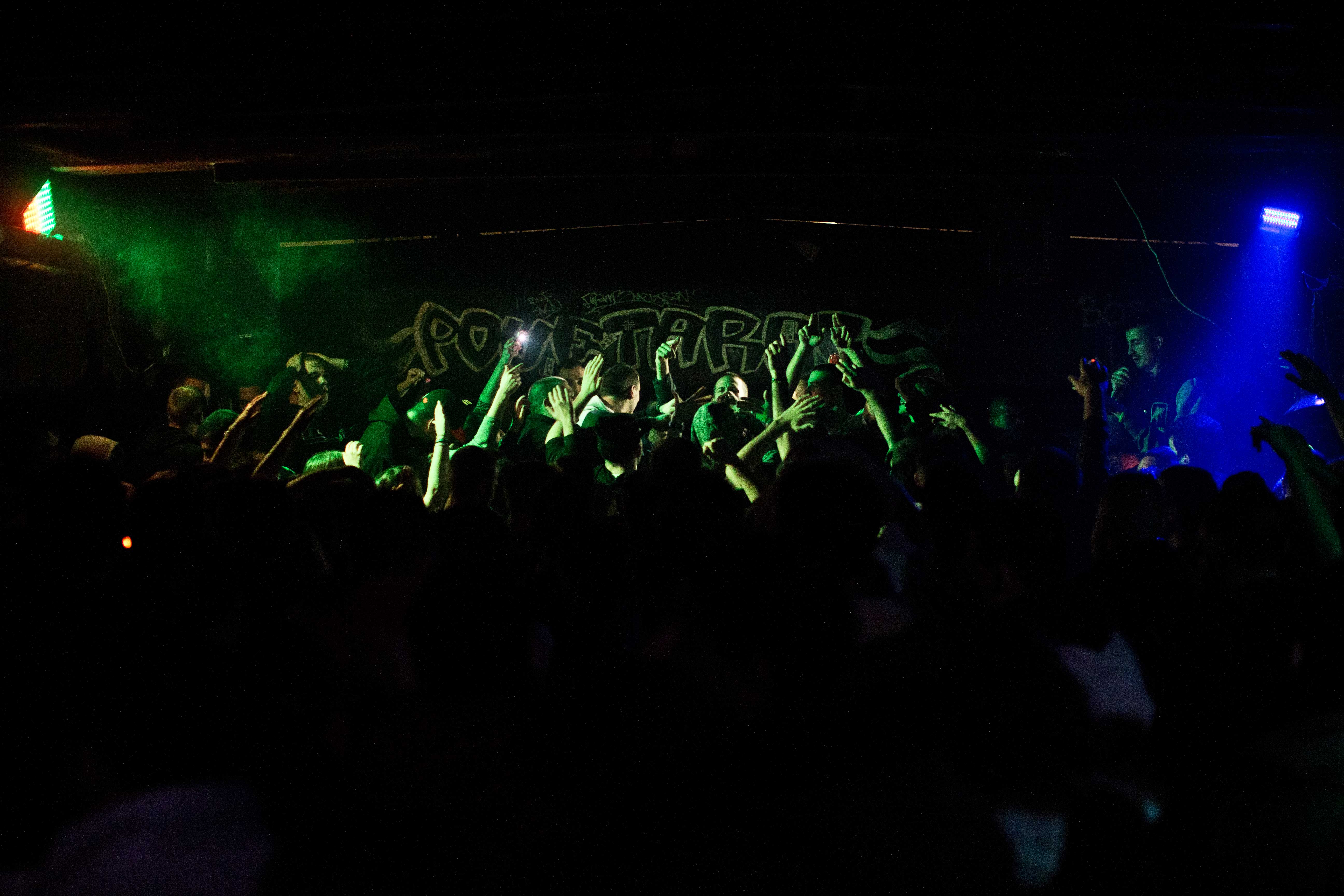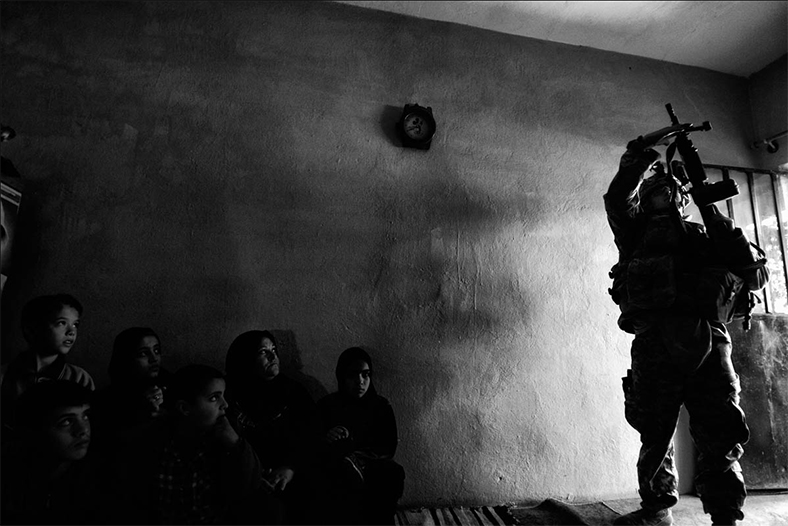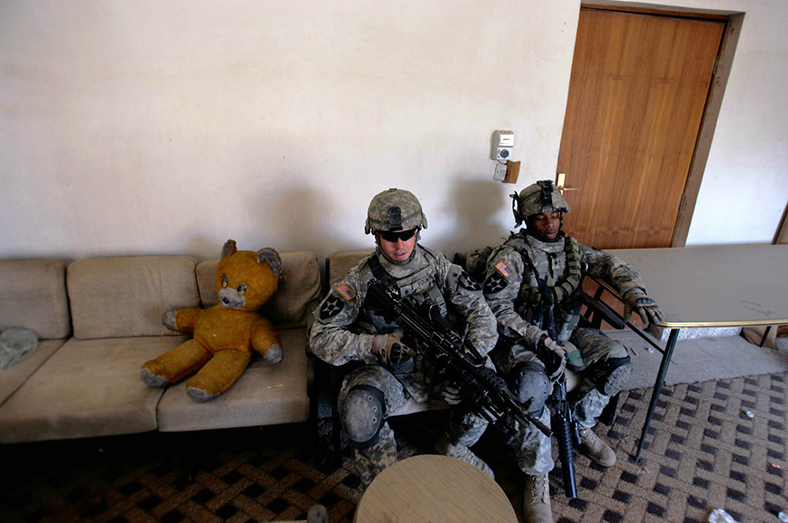
A Study in Contrasts
Peeps Publisher Anya-Milana Sulaver spoke with photographer Marko Drobnjakovic, a photojournalist with the Associated Press Newswire. He’s shot extensively in Iraq and the Balkans, covering spaces of conflict and disruption, bringing news and images from around the world into the homes of people across the globe. His pictures are often the images you see first thing in the morning while reading the newspaper or reading your news feed. Drobnjakovic’s photo essay for Peeps capturing the day-to-day life of rap artists Sick Touch is being shot to accompany the magazine’s cover story investigating Serbian hiphop culture in his hometown of Belgrade.
Anya-Milana: What makes a good photograph?
Marco: What constitutes a good photograph is some sort of contrast.
Anya-Milana: So, contrast as in building drama? Contrast in what form?
Marco: I think contrast is found in everyday situations. No matter where you look, you can find it. Take a walk down the street in Belgrade and if you look closely at a red light you will see a Ferrari parked by, like, a fifty-year-old Russian car. So, you know, I come from a very contrasty place. I come from a place with huge differences between the rich and the poor. I come from a place that doesn’t have social justice, or any sort of justice at all. So maybe that is something that drives me towards searching, finding, and trying to recognize contrast.
I keep thinking of Iraq. I was twenty-six when I started going there. And I really didn’t know what I was getting myself into. After five minutes of panic when I first arrived there, I found some sort of a peace of mind that was needed to just survive those kind of places. The best pictures, in my opinion, that I’ve taken, in Iraq are not firefights, not bombings, not Friday prayers, not religious content; it was house-to-house searches, in different neighbourhoods, either Baghdad or other cities. Because all of a sudden, I mean, without me getting into US military tactics and strategy, at a certain point they started doing a lot of these house searches, and they wanted to approach it with a lot of respect for the local folk. But the problem is, they’re doing it at like three a.m. So, you get a knock on the door and all of a sudden there’s like twelve dudes dressed in green that want to search your house.
That is a contrast. Most of those house searches were done in a respectful way. [The soldiers] didn’t harass or maltreat anybody, at least not while I was there with them. Just the fact that somebody not by definition malignant was in your house trying to find stuff is a contrast, isn’t it?
“The best pictures, in my opinion, that I’ve taken, in Iraq are not firefights, not bombings, not Friday prayers, not religious content; it was house-to-house searches, in various neighbourhoods, either Baghdad or other cities.”
Anya-Milana: Where do you see contrast in, say, the work you’re doing with Peeps and anthropologist Victor Barak on Serbian hip-hop culture? I know this isn’t your usual project…
Marco: When you say hip-hop, what immediately comes to mind? Like, rap music of course, like hip-hop music, has a sort of a macho vibe to it, doesn’t it? Most of the time. It depends on who you’re talking about. If we’re talking about The Roots, then they’ve done a good job at expelling machismo and bullshit out of their music. But when it comes to, I don’t know, guys like 50Cent, it’s all they sell, no? Like, “Yeah, I’m a big muscley guy and I used to sell drugs but now I’m good.”
I didn’t know what to expect as I didn’t have too much experience with homemade hip-hop. But what comes to mind as the contrast in this story is: he [Cobran, leader of the Serbian hip-hop group Sick Touch] likes this rap thing and he’s very successful at it. But he tries to be a bit macho and he tries to, you know, sell me this I’m-from-the-blocks-type story. But he’s a really nice guy, you know? He’s very courteous of me, and he’s aware that I’m his elder.
Anya-Milana: Because you’re so old at thirty-six.
Marco: Ha-ha, what can I say? But I can see that sort of home-grown, what your grandma would instill in you and brainwash you with when you were a kid. I can see that in him, and that’s a contrast for me. Because when you go to a concert you see a lot of these sixteen-year-olds that smoke a lot of hash. Whatever they wanna do is fine with me, but the thing is, I have a kid now, I have the role of concerned parent. I see these sixteen-year-old kids that don’t work on themselves enough and that don’t take school seriously; they don’t want to be informed about anything, they have their own version of events, and it kind of makes me wonder, where is this world going to? But then you have this guy Cobran, when he talks to me, I can see that his grandma taught him something.
That’s contrasty for me, because usually when I see this, the generation of kids listening to his music for example, I think, “Jesus Christ, what did we get ourselves into? Like, how are these kids so narrow-minded?” But then, you see their leader, basically. And he’s a bit older than them: they’re sixteen to eighteen; he’s like twenty-six. I see him and he is not perfect at all, but a very nice guy. Very courteous and respectful.
And he’s actually asking me questions because he wants to know about me, he wants to know about my work. And I say hey, you know, this guy has substance, he has something that I was not expecting. I think being out of your comfort zone, and somebody not meeting your expectations but exceeding them, I think that’s contrast as well. ●
–
Marko Drobnjakovic, a Belgrade-based photojournalist known for his work with the Associated Press Newswire speaks about his work for the article.

